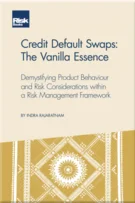Identifying ESG risks and opportunities in alternative investments
Joachim Merten and Callum Macpherson
Linking ESG scenarios to real economy outcomes
Analysing ESG policy, market and portfolio construction considerations
Case Study 1: Applying ESG considerations to a pension fund’s equity portfolios
Case Study 2: Applying ESG concepts to wealth management portfolios
Managing environmental and climate transition risks and opportunities within portfolios
Considering physical climate risks and resilience in real asset investment
Case Study 3: Practical issues and considerations for implementing a Net Zero emissions strategy for asset owners
Evaluating social criteria in fundamental and thematic investment portfolios
Case Study 4: Defining impact investing for today‘s ethical investor – evaluating the efforts of Evangelisches Johannesstift
Developing governance and active ownership frameworks for investment analysis
Case Study 5: Applying active ownership and stewardship to a pension fund portfolio
Identifying ESG risks and opportunities in alternative investments
Reviewing the EU regulatory framework for ESG investors
Assessing data and disclosure challenges in ESG investing
Corporate social responsibility across industries: When and who can do well by doing good?
Reflecting on how ESG investing, accounting and governance have evolved over time
Alternatives cover a very wide array of assets. More or less anything that is not a direct investment in bonds or stocks in the public market has been classified under this broad term. In this chapter we will not, and cannot, cover all the different aspects of ESG in alternative assets as the topic would require a book in itself to do it justice. Instead, we will try to give a glimpse of the importance of ESG for many of these types of investments. The chapter is split into two parts. The first covers equity and debt investments into unlisted businesses, while the second deals with expressing ESG themed views on traded commodities and considers the ESG implications of the emerging field of cryptocurrencies.
PART 1: PRIVATE EQUITY/DEBT, FUNDS
Joachim Merten
ESG have been a dominant theme in alternative assets since the early 2010s. From real estate to buyout investments, asset managers were challenged to adhere to increasingly stringent standards by regulators as various jurisdictions started to introduce mandatory ESG disclosures for asset managers (Benson et al, 2021). There was also growing demand by the investor community, such as the formalisation of requirements in
Copyright Infopro Digital Limited. All rights reserved.
As outlined in our terms and conditions, https://www.infopro-digital.com/terms-and-conditions/subscriptions/ (point 2.4), printing is limited to a single copy.
If you would like to purchase additional rights please email info@risk.net
Copyright Infopro Digital Limited. All rights reserved.
You may share this content using our article tools. As outlined in our terms and conditions, https://www.infopro-digital.com/terms-and-conditions/subscriptions/ (clause 2.4), an Authorised User may only make one copy of the materials for their own personal use. You must also comply with the restrictions in clause 2.5.
If you would like to purchase additional rights please email info@risk.net









